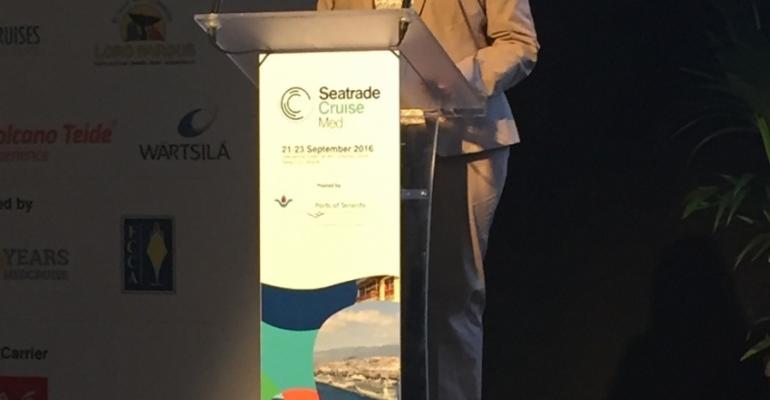Speaking at the Seatrade Cruise Med conference on Thursday, Global Ports Holdings' director of cruise marketing, Carla Salvadó, said the key to addressing destination capacity constraints is to 'coordinate, align strategies and ambitions, and be realistic.'
Mutual understanding, social acceptance, political stability and support as well as a shared long-term vision are vital elements for a modern port-city cooperation, according to Michel Nestour, vp global port and destination development – EuroMed, Carnival Corp. & plc.
Mark Robinson, president of Intercruises Shoreside & Port Services, called on ports to focus not only on maximum capacity utilisation, but also to consider the space needed for parking and port access, and the capacity of local sights.
Salvadó and Robinson further advocated education and training for local service providers as a key element, particularly at newly developed ports and regions.
Ellen Lynch, senior director of shore excursions, Holland America Group, encouraged destinations to 'understand what the [cruise] brands stand for' and present information relevant to each brand and its guests.
Lynch referred to the 'Local Connections' program launched initially for Princess Cruises but to be extended to other brands in the group. It features 10 initiatives, including the creation of destination- and people-focused pre-cruise videos, dynamic local experts to speak on board, content-sharing, and port welcomes and farewells.
In line with other speakers Lynch said crowded destinations don't give a good impression, and suggested ports, port agents and tour operators should address such situations in advance and communicate congestion concerns to the cruise lines as early as possible. She said travelers are increasingly looking for more intimate experiences, avoiding crowds and the feeling of being herded.
Lynch also addressed the issue of independent, third party tour operators frequently appearing in ports. She said ports should ensure official tour busses are properly lined up and dispatched, and keep independent operators from interfering in this process.
This issue is particularly critical, Lynch said, since guest safety remains the cruise lines' primary concern. Her view was seconded by Grupo Pullmantur's Javier Marín Martinón, who said independent tour operators in some ports are even making unauthorised use of cruise line logos in their promotions, creating confusion for travelers.
Ways to overcome port congestion were intensely debated at Seatrade Cruise Med throughout Wednesday and Thursday. With direct communication between operators blocked by antitrust regulations, various delegates suggested Cruise Lines International Association or MedCruise should step up as coordinators, while others said this is the ports' role.
The senior executive of an Italian port said cruise lines should, as a standard, require berthing requests to be confirmed within 48 hours to make itinerary planning easier for all parties involved.
Copyright © 2024. All rights reserved. Seatrade, a trading name of Informa Markets (UK) Limited. Add Seatrade Cruise News to your Google News feed.


